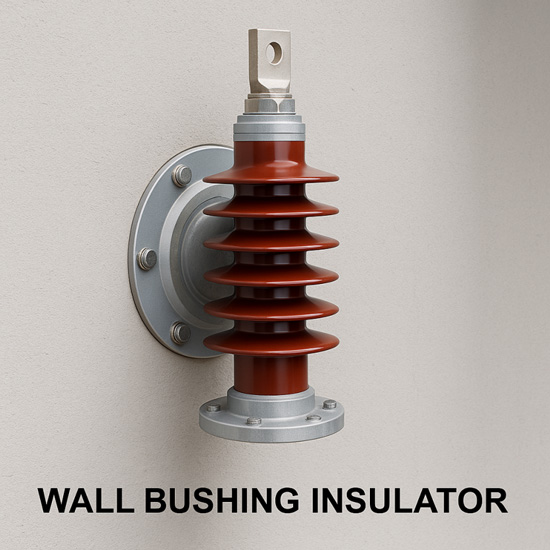In power substations, switchgear rooms, and transformer enclosures, wall bushing insulators play a silent but critical role. They enable safe, reliable, and insulated electrical connections across concrete walls or metallic barriers, ensuring voltage is transferred without compromise.
Unlike more visible equipment, these bushings operate in confined spaces, where performance, sealing, and long-term reliability must be guaranteed—especially in medium- and high-voltage environments.

A wall bushing insulator acts as a bridge between indoor and outdoor electrical systems. Whether it's connecting switchgear to external cable terminations or enabling high-voltage leads from a transformer to reach an overhead line, the performance of the bushing directly impacts the system’s insulation integrity and safety.
✅ Seamless Insulation Through Barriers
Maintains dielectric strength across walls or enclosures—no need for special compartments.
✅ Moisture & Pollution Resistant
Most models are made with epoxy resin or porcelain, delivering long-term weather resistance and pollution flashover protection.
✅ Compact Installation
Designs tailored to fit standard wall openings, reducing field modifications and saving time during site work.
✅ Voltage Ratings from 10kV to 40.5kV
Suitable for a wide range of applications in distribution switchgear, compact substations, and transformer vaults.
✅ Mechanical Robustness
Withstands both electrical and mechanical stress, especially in outdoor-mounted or vibration-prone setups.
A utility deploying compact ring main units (RMUs) for urban underground networks uses 35kV wall bushings to safely route power cables through substation walls. Thanks to the bushings’ high creepage distance and tight seal, downtime caused by flashovers and moisture ingress dropped to near zero in 3 years of operation.
Buyers should look for:
·Conformance to IEC/GB standards
·Compatibility with SF6 switchgear, transformers, or GIS walls
·Anti-aging and UV-resistant insulation materials
·Reliable sealing performance with wall structures
For engineering contractors, power companies, and equipment OEMs, selecting high-quality wall bushing insulators is a key step toward ensuring long-term operational stability, especially where space is limited and safety cannot be compromised.